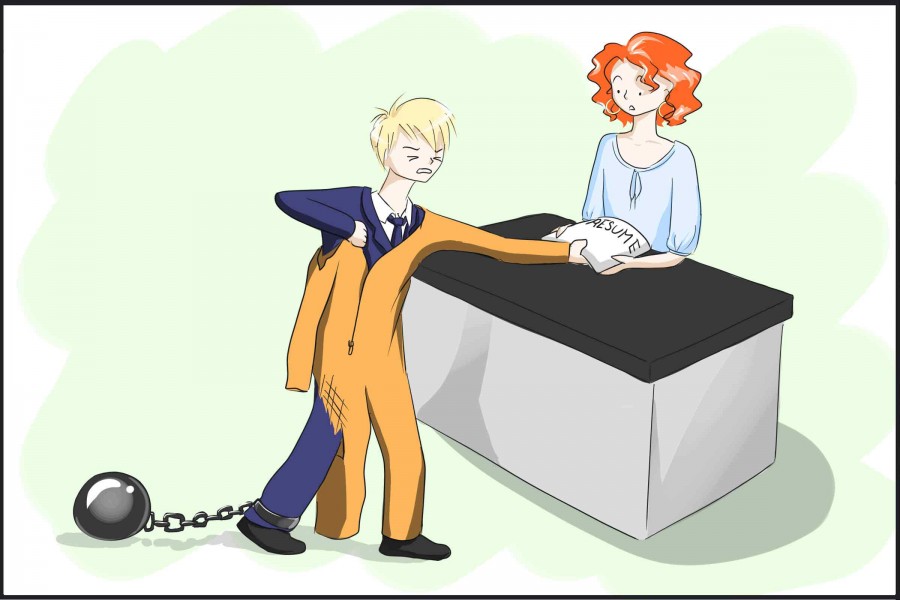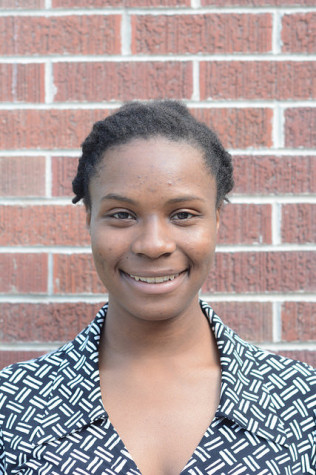‘Violent’ offenses cause barriers
Graduate students face difficulties with past felonies
October 9, 2015
At approximately 11:45 on Dec. 21, 2007, Bill Keizer, a 45-year-old man driving under the influence of alcohol, was involved in a car crash that killed an 11-year-old boy. Keizer was sentenced to four years in jail for vehicular homicide and vehicular assault. Now, nearly eight years later, the shadow of that car crash still hangs over Keizer, and notably, over his education.
Kiezer returned to Eastern after he was released from prison, where he completed a graduate certificate in Addiction Studies. Then in the fall of 2015, he elected to complete a Masters in Public Administration.
Early in September, as Keizer was filling out his graduate application, he came across two questions, one asked him to check a box if he was a registered sex offender. The other asked him to check a box if he had ever been convicted of a violent felony. Vehicular homicide, while not a crime of intentional violence, is considered a violent felony in the state of Washington. Keizer checked the box.
“I think a week or maybe 10 days went by, and I finally got a call from the dean of students office. And they said that because I had checked that box … there has to be an investigation process,” said Keizer. “It was the Friday the 18th that I spoke with the admissions department … My understanding was the investigator would look into my background … and I could potentially have to be called in for an interview as well. The monday after school started I still had not heard anything.”
Detective Quincy Burns of the Campus Police said Keizer’s experience is typical of the Eastern applicant with a criminal record.
“This is a collaborative thing with the dean of students omffice,” said Burns. “We have two boxes that are on the application. One is if you’re registered sex offender, the second is another box we call the criminal offender or PCO box.”
According to Burns consequences of non-disclosure for students in Keizer’s situation, but who did not check the PCO box, could end their educational career at Eastern.
“They’ve basically falsified their application, which falls under the student conduct code, and there could be sanctions leveled against that person up and to permanent expulsion,” said Burns, “It really depends upon what brought it to our attention and what we’re dealing with.”
If, like Keizer, a student is open with the school about their past, they will be called for a one-on-one interview with Detective Burns and the dean of students.
“We want to take a look at the individual to see just what happened in their past, and that they’ve gotten past that in the future … We have a responsibility to keep our campus and the students here safe,” said Burns.
After the interview, Detective Burns and the Dean of Students make a recommendation to Stacy Morgan Foster, vice president of Student Affairs.
“She’s one who has the right to say ‘no’ or ‘yes,’ ” said Burns.
Keizer’s own interview went well,“The investigator said, ‘As far as i’m concerned we have no problem with you registering.’ [He] called the Dean of Students and appointment. She was very pleasant, very empathetic, and said she had no problem either,” said Keizer.
Still, Keizer said he feels the investigation, and the delay that it caused, might have turned away less tenacious applicants in his position.
“For me it was a matter of inconvenience,” said Keizer, “I just got my financial aide, I couldn’t buy books … my professors were kind enough to allow me to attend class before registration … If they had not done that I might have just said ’Screw it.’ ”
Keizer speculated that other students in his position never made it through the process because they lacked the self-advocacy to continue the process in the face of academic delays.
Delay is not necessarily unusual, according to Burns, “Any time those boxes are checked the process automatically flags that applicant and that process is stopped until [the investigation] protocol is followed.”
For Keizer, things have worked out, however he worries that Eastern’s policy towards those with criminal records is impeding the rehabilitation of those with criminal records.
“Because of concerns for public safety, Eastern is putting up a barrier between individuals who have a criminal history and our ability to access our education,” said Keizer. Keizer supports policies like “ban the box,” which keep public employees from asking about criminal histories on initial applications, allowing job applicants to explain their history in an interview setting.
Keizer hopes to graduate from Eastern this winter. He is a cofounder of an LLC called Revive Reentry Services, an organization that seeks to prevent relapse by “providing safe clean and sober housing, peer support, social and emotional support for those whom have served their time in prison and want to make a change in themselves and become a productive member of society,” according to Revive Reentry’s Facebook page.
The Office of Admissions has not yet responded to requests for comment.









